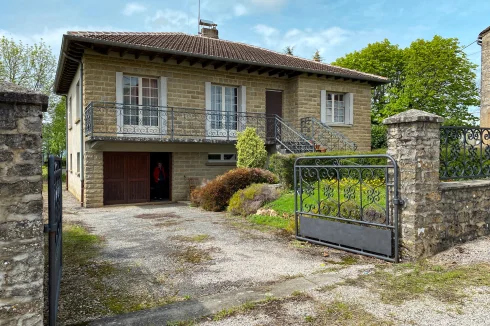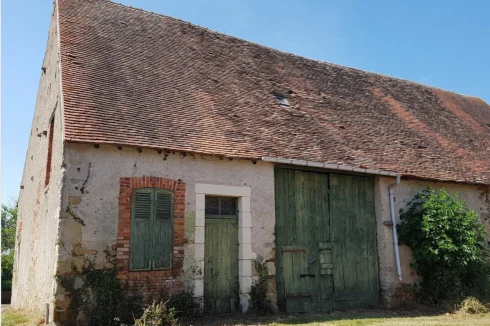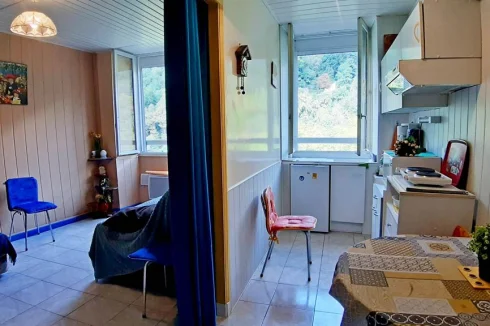Role of Huissier in France
Friday 04 December 2020
Serious disputes in France invariably involve use of an official bailiff, called a huissier.
In France, the nearest equivalent to a bailiff is the Huissier de Justice (huissier).
However, the functions of the huissier are much broader-based and more complex than those of a bailiff with which Anglophones are familiar.
Their name translates roughly to 'usher of the law'.
What do they do?
The huissier is a government appointed official (officier public ministériel) and part of the French State justice system.
Their role can be divided into two main generic areas of activity, one that is judicial and the other non-judicial:
- Executing a court order or related title, called titre exécutoire;
- Playing a wide-ranging legal role in their own right, often independently of the courts, called 'délivrance d'actes authentiques'.
i. Enforcing Court Orders
Some examples of their role in executing court orders include:
- Evicting people from property, after due legal process, possibly with the assistance of local law enforcement officers;
- Seizure of goods (or money) in order to recover debts;
- Negotiating with tenants who are in arrears to try and identify a solution that does not involve eviction;
- Reviewing and at times questioning court orders when it is perceived that they are in error of law or procedure (courts are known to make mistakes in these areas and the huissiers act as a form of quality assurance);
- Formally presenting court order documents to a duly identified party, such as subpoenas and summonses.
ii. Providing Legal Assistance
A huissier is able to offer general legal advice, for which they can make a charge, and examples of particular activities include:
- Writing letters, which carry a degree of legal weight, on behalf of someone to a third party, most commonly seen in disputes between neighbours that might involve confirming someone is in contravention of a law and recommending solutions;
- Preparing a witness statement called a 'constat', which is often used as a precursor step in legal proceedings. For example, a 'constat de l’état des lieux d’un appartement' would be a formal statement confirming the condition an apartment was left in following the departure of tenants (possibly giving the landlord grounds for legal action relating to compensation);
- Taking inventories of a person’s finances and possessions in advance of a court-case and potential garnishee orders;
- Acting as an arbiter between two parties (e.g. neighbours) who are in dispute;
- Stating via a constat, whether or not adultery has taken place based on the evidence in hand. This often relates to divorce proceedings;
- Trying to help disputes through mediation;
- Witnessing the exchanges of documents (including emails), thereby giving them legal and contractual force;
- Identifying people and certifying their identity.
Huissiers regularly stress that they are legally required to act in a socially responsible and totally objective fashion.
As a result, they do not usually consider themselves to be simply the 'hard enforcers' of the legal system in the bailiff sense, but rather facilitators of justice. They do have extensive enforcement powers at their disposal, but they will typically look for conciliation and agreement before, reluctantly, using them in conjunction with a court order.
They are not in any way analogous to commercial debt collection agencies, who typically act based exclusively upon a client’s instruction. Even though huissiers will act to try and recover debts, they will expect to see evidence of the basis and legitimacy of the debt or a court order indicating such has already been proven.
Using their Services
Many people who encounter the services of a huissier do so indirectly through taking separate court action.
If you have engaged an avocat to conduct a legal action on your behalf and you obtain a court judgment which requires execution, your avocat will usually liaise with the huissier on your behalf.
You are though, at liberty to approach them directly in circumstances where the issue is one which they are authorised to progress themselves without court proceedings, or where you have a court judgement you wish to action yourself.
A typical example might be in a situation where you are in dispute with a neighbour over responsibility for damage to a shared boundary wall. You can ask the huissier to act as an independent assessor through the preparation of a constat or do so jointly with the other party.
In cases of debt and dispute, it is normal practice in France to firstly seek arbitration and a friendly resolution, possibly through the huissier, rather than go directly to the courts, where significant delays are likely to be experienced.
Note that if you engage a huissier and their decision is not to your liking, it is nevertheless incontestable and binding. Your only redress would be to challenge it in court. This is a subtle point that is widely misunderstood and one reason why there are often criticisms that huissiers are ineffective.
Some people engage huissiers in the belief that they will be acting exclusively on their behalf in disputes and the resolution of the same. In fact, they will act independently and objectively; it is not the same as engaging an avocat to act for you.
Their role, in that respect, is similar to the notaire in house sales, who acts as an agent of the State to ensure the correct process has been followed – not in the exclusive interests of either the vendors or buyers.
If you are on the receiving end of their attention, remember that the huissier is acting either based on a court order or the request of a third party in conjunction with their own judgement. They are likely, within certain limits prescribed by law, to be amenable to reason and discussion plus they are obliged to give due consideration to your actual situation.
Explain your position politely and constructively. Seek a compromise and negotiated settlement. Remember, they will normally be very reluctant to move to legal action and eventual ‘enforcement’.
Do not simply ignore a communication from the huissier or become aggressive and belligerent in response.
How much to they charge?
Their schedule of tariffs is Kafkaesque and we can do no more here than give a general overview of the system.
Broadly speaking, their services from a charging perspective divide broadly into two categories:
- Where they have a legal monopoly and the client has no choice, their charges are controlled by the State, which you can find at Tarifs réglementés des huissiers de justice.
- Those that are not mandated to them exclusively by the State, where they are free to set their own tariffs.
The fees are then made of of three main components, which are often cumulative:
- A lump sum, which may be fixed or proportional, but which also may be cumulative, and to which a coefficient may be applied;
- Expenses corresponding to travel and disbursements incurred;
- Possibly, a right to a separate fee for debt recovery action (called 'droit d’engagement de poursuites') and a right to a management fee.
For those duties where the charge is State controlled, the huissier is entitled to an increased fee if they are confronted with an emergency situation (majoration pour urgence), or to an additional fee for if the actual performance of their duties exceeds a period fixed by ministerial order (émolument complémentaire de vacation).
Where they are undertaking an inspection of a property (constat de l’état des lieux) the fee is based on the size of the property.
Where they are successful in debt recovery action, they are also entitled a success fee, called a recouvrement ou d’encaissement. That fee may be deducted from any sum payable to the creditor.
The fees are also subject to VAT at a rate of 20%.
As a very basic principle, where their actions are associated with debt recovery and court orders, it will be the debtor that pays their fees rather than the creditor, although in some circumstances they are entitled to fees from both debtor and creditor.
In other circumstances, it might be the person engaging them that pays – examples might include registering and witnessing documents.
Consequently, before formally engaging a huissier it would be prudent to have a full discussion with them about their pricing, and who in the dispute would be liable to pay the fees. Note, that where the action is not one where they hold a monopoly, their fees are freely negotiable.
There is widespread criticism of overcharging, which often arises as a result of uneccesary fees that have been charged.
You should, therefore, ask for a written estimate, which will provide a degree of clarity and protection. If you do not like what you hear, you can obtain an estimate from another huissier, although many are reluctant to work outside of a specific geographic area.
The official directory of huissiers can be found at Annuaire Huissiers de Justice.
Complaints System
With complaints about overcharging and poor service (due diligence, delays) commonplace it would be reassuring to know that an effective complaints system was in place.
Unfortunately, however, like the notaires, the profession is self-regulated, with complaints handled by the professional body the chambre départementale/régionale.
And as with the notaires, the system is widely riduculed for being ineffective, with the overwhelming majority of complaints being dismissed by the disciplinary body.
The other course would be to the procureur de la République, but only complaints of a serious nature with clear evidence will be considered.
A huissier's professional civil liability may also be engaged in front of the civil courts if you consider they have committed a fault causing you a prejudice.
Thank you for showing an interest in our News section.
Our News section is no longer being published although our catalogue of articles remains in place.
If you found our News useful, please have a look at France Insider, our subscription based News service with in-depth analysis, or our authoritative Guides to France.
If you require advice and assistance with the purchase of French property and moving to France, then take a look at the France Insider Property Clinic.





